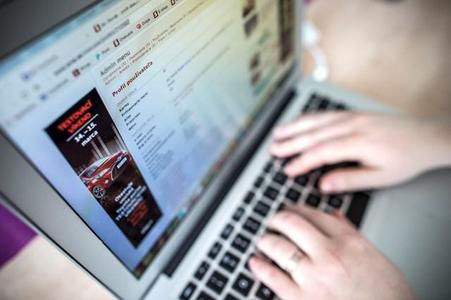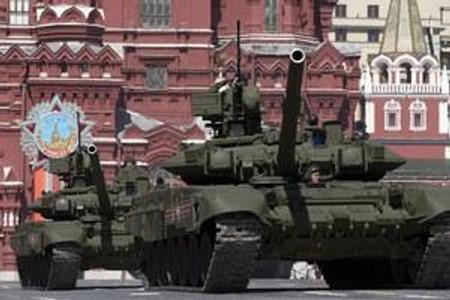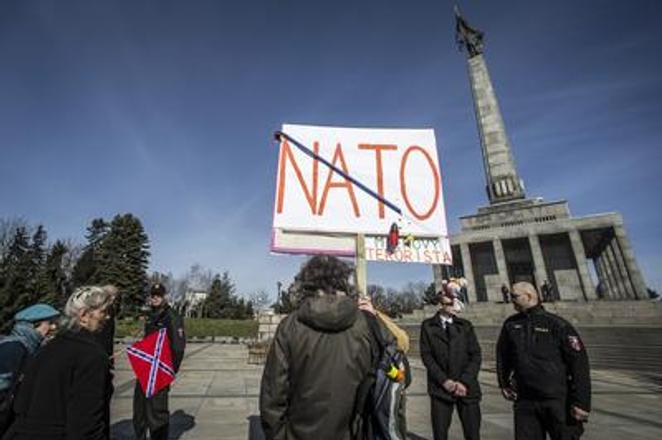Slovaks hope that in the case of danger allies would help their country but only half of them would help a NATO member country in a similar situation. Generally, they prefer neutrality, but feel to be closer to Russia than the United States more often than their neighbours.
It stems from Transatlantic Trends annual surveys and recent Globsec Policy survey published on September 7. The survey was carried out in the Czech Republic, Slovakia and Hungary. In Slovakia, it was conducted by Focus pollster in February on sample of 1,000 respondents.
“Slovaks see the United States as an expansive great power and as a nation they are more likely pacifists,” Grigorij Mesežnikov of Institute for Public Affairs (IVO) told The Slovak Spectator. “On the other hand, they were less critical to Russian activities in Crimea than to the US military operation in Serbia.”
Globsec Policy conducted survey to observe influence of pro-Russian propaganda spreading across the central Europe.
“Emphasising neutrality is one of the key stories of the Russian propaganda aimed at undermining public support towards NATO membership,” reads the Globsec report.

Sympathies for Russia
Orienting Slovakia eastward toward Russia would be preferable to just 12 percent Slovaks, but this is twice as much as in Hungary (6 percent) and three times as much as Czechs (4 percent), according to Globsec.
Sociologists and political analysts agree that Slovaks like Russians more than their neighbours out of historical reasons. The sympathies have origins in Habsburg Monarchy in the beginning of 19th century. Slovak leading personalities were then looking for an ally which would help them to gain more national rights in the multi-ethnic empire.
“In those times we made up and glamorised the picture of Russia,” Alexander Duleba of the Slovak Foreign Policy Association told The Slovak Spectator. “Even Russians did not understand what we wanted from them.”
Another reason is that Slovaks have never had standard military conflict with Russia. Many people positively see that socialist regime exported by Russia brought modernisation to Slovakia and rural country turned into a state with strong arms industry, according to Duleba.
The Globsec survey also shows that 23 percent of Slovak respondents feel a part of the west and 52 percent want to stay somewhere in the middle.
The public generally want to be somewhere in the middle when it comes to geopolitics, according to sociologist Oľga Gyárfášová.
“There have been idea about the bridge between west and east for years,” Gyárfášová told the press.
Preferring neutrality
Globsec data shows that 30 percent of Slovaks think positively about NATO and 20 percent do not. Another half of respondents were undecided. When it comes to EU, 52 percent of Slovak respondents see the union positively and 14 percent negatively.
This destroys the picture created by Russian supporters in social networks that Slovaks generally support Russia, according to Daniel Milo of Globsec.
“Despite efforts to get closer to Russia visible in this region, citizens mostly agree with membership in NATO and EU,” Milo told the press. “It is not truth that Slovakia has the big group of people with pro-Russian orientation.”
However, especially alarming is the finding that the increasing number of people perceives neutrality as a source of security in the world, according to Globsec.
“Even though 20 percent of Slovaks and 17 percent of Czechs refuse NATO membership right after the word neutrality emerge, 47 percent of Slovaks and 39 percent of Czechs say that neutrality would be better than membership in NATO,” reads the Globsec’s report.
Slovaks have a feeling that they are more moral when they reject military interventions abroad, which will mean that nobody will attack Slovakia either, according to Duleba
“It shows naivety of Slovaks when it comes to foreign issues,” Duleba said.
Further, the survey shows that 54 percent of Slovaks consider NATO as important for their security and the same number of people would protect NATO member state in case of assault. At the same time only 36 percent of surveyed people want a NATO base in the country.
“It is sort of consumerism; we are expecting that we will consume advantages of treaties but when it comes to help to our allies we hesitate,” Mesežnikov says.

Attitude towards the US
Attitude towards NATO are influenced by Slovak opinions on US foreign policy. More than 60 percent of Slovaks believe that the United States uses NATO to control states like Slovakia and 48 percent of them think that the United States is responsible for the Ukraine crisis, according to Globsec.
The United States strong leadership in world affairs is desirable or somewhat desirable for 33 percent of Slovaks. In case of Russia it is 41 percent, according to 2011 Transatlantic Trends survey.
Reasons for anti-Americanism are complex and are related to culture and history, according to Gyárfášová.
“The most visible anti-American period was during invasion in Iraq and was connected to President Bush,” Gyárfášová said. “Barack Obama was a popular president in Europe when he took the office but Slovaks reservation towards the United States prevails.”
Russian propaganda also affects attitudes toward the United States, according Jakub Janda of European Values think tank. European Values has gathered around 1000 disinformation pieces spreading in Czech Republic and 20 percent of them are anti-American messages.
“We were surprised because we thought that migration issue will be the most numerous,” Janda told the press. “We cannot show how it influences opinion [about the United States] but we know that it is happening.”
Russian propaganda
Globsec also measured how many Slovaks prefer so called alternative media over mainstream media. Most Slovaks namely 72 percent expressed their trust in mainstream media while only 17 percent prefer alternative sources.
The number is however higher among young people. For 29 percent of Slovaks between age of 19 and 24 alternative media is more trustworthy.
“They are attractive to young people because they offer something different,” Gyárfášová said. “It is also connected to overall atmosphere here as anti-system parties gain popularity.”
Globsec suggests Slovak authorities and politicians officially admit that Russian propaganda is real. Currently mostly NGOs are doing that together with Slovak intelligence service. There should be also monitoring system of this propaganda and communication strategy targeting it, according to Milo.
“We have generation of people who consume information solely from internet and do not have skills to sort between trustworthy and untrustworthy,” Milo said. “If we will ignore that this generation soon will participate in elections or is already voting, we will see the results.”



 (source: Sme )
(source: Sme )